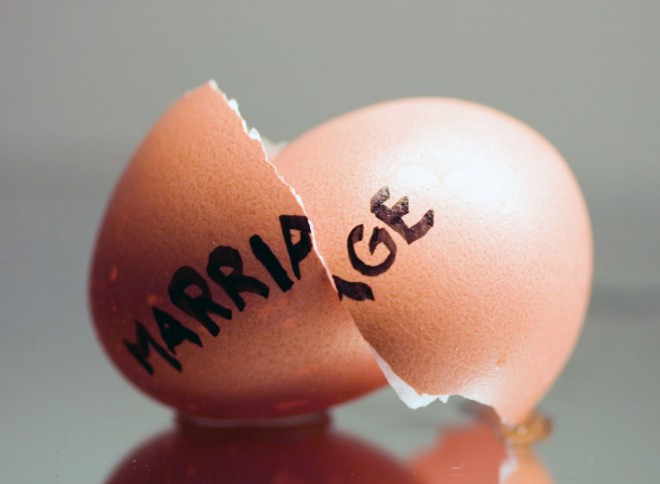Divorce is not a bad word
I have been away and only checking mails (and social media) intermittently, and so I missed the announcement of the gospel singer, Osinachi Nwachukwu’s death from ‘throat cancer,’ and the subsequent allegation of death by domestic violence at the hands of her husband, Mr. Peter Nwachukwu. Even if you don’t know her by name, chances […]

I have been away and only checking mails (and social media) intermittently, and so I missed the announcement of the gospel singer, Osinachi Nwachukwu’s death from ‘throat cancer,’ and the subsequent allegation of death by domestic violence at the hands of her husband, Mr. Peter Nwachukwu. Even if you don’t know her by name, chances are that you’ve heard her sing. “Ekwueme” is my favourite of hers and arguably the most popular.
There are many pictures of Osinachi with her husband online, looking happy. Nevertheless, it is being revealed now by her friends and colleagues that she lived in absolute terror of the man. It’s said that he was controlling and abusive, jeopardizing her career in some cases by threatening to not let her honour invitations she’d committed to, and deciding for her which to accept in other cases . She’d supposedly told a friend that he’d sometimes tie her up and ask their children to lash her with a cane. Per reports, she told another friend that ““If not for the church and what people will say, I would have left this marriage.” She’d purportedly tried to leave before but Pastor Paul Eneche, founder and senior pastor of Dunamis International Gospel Centre, intervened and convinced her to stay. The only way, it seemed, Osinachi could leave the toxicity of her marriage was in a body bag.
- Rainstorm destroys houses in Maiduguri
- S/Court affirms 6-year jail, N22.9bn refund for ex-pension director, Yusuf
Marriage is a good thing: finding someone with whom you’re comfortable enough to commit to and begin a life together is a beautiful, brave step to take. It is, in my opinion, the ultimate leap of faith. No one, I think, takes that step under normal circumstances, hoping to dissolve it. What marriage is not is a prison. It is not a poison. When it becomes punishment, when it becomes torture, when it becomes dangerous, then we must do everything possible to leave or encourage those who are trapped in it to leave. Never mind what society or your church will say.
In our society, especially, we must amplify the education of women on the perils of hanging on to a relationship against their best interests (physically and emotionally). Make it part of pre-marriage counselling. Let your daughters know that marriage is not a do or die affair because the statistics of domestic/intimate partner violence are damning. According to a 2019 NOI Polls report, “47 per cent of Nigerians have either been victims or know a victim of domestic violence, “ with more women victims than men. And many of these women stay on, so Osinachi’s case – women staying on in abusive, sometimes dangerous relationships – is not atypical. These stories are all around us.
We remember the very public reconciliation of the battered Dr. Ifeyinwa Angbo and her Channels TV journalist husband, Pius Angbo, by Governor Ortom of Benue State. At the reconciliation, Dr. Angbo’s scars from being beaten, four weeks after a C-section, were still visible. After she and her husband ‘made up’ on TV, she wrote a post asking the public to “mind your business and leave my family alone…Going forward, I want to make my marriage to work. All we need now is your prayers.”
Years ago, when I lived in Belgium, a Nigerian woman came to my door, barefoot and coatless, on a winter morning. She’d run away from her husband who was mentally and physically abusive. She told me horrific stories of how this man with whom she shared children abused her. Long story short, she refused to go to a women’s shelter, went back home with her husband when he turned up at my door and they both denounced me for encouraging her to leave him. I apparently wanted to stay in my marriage but have her become a divorcee.
The stigma of divorce (what will people/the church say) is dangled over women and empowers their abusers. The message is to take the abuse until “death do you part,” rather than to face the taboo of being a divorced woman. And yes, I know that it isn’t always easy, especially in Nigeria, for women to have the means to leave. That argument comes up all the time. However, in both Angbo’s case and Osinachi’s, financial independence wasn’t an issue. A physician and a successful singer: they could very easily look after themselves and their children. Culture, society, that’s what traps many victims rather than the ability to support themselves. A twitter user pointed out that had Osinachi left her husband, churches would have stopped giving her opportunities to minister. This past Sunday, those same churches had their choirs singing her iconic Ekwueme in tribute to her.
Let me therefore repeat an appeal I’ve made in the past: Women, please: divorce isn’t a bad word, no marriage is worth your life. And the society and church community whose judgment you fear will carry on without you. Some may even blame you for not being “strong enough to leave.” We are seeing it happen in real time to Osinachi who’s left four children orphaned. Don’t be a statistic.
